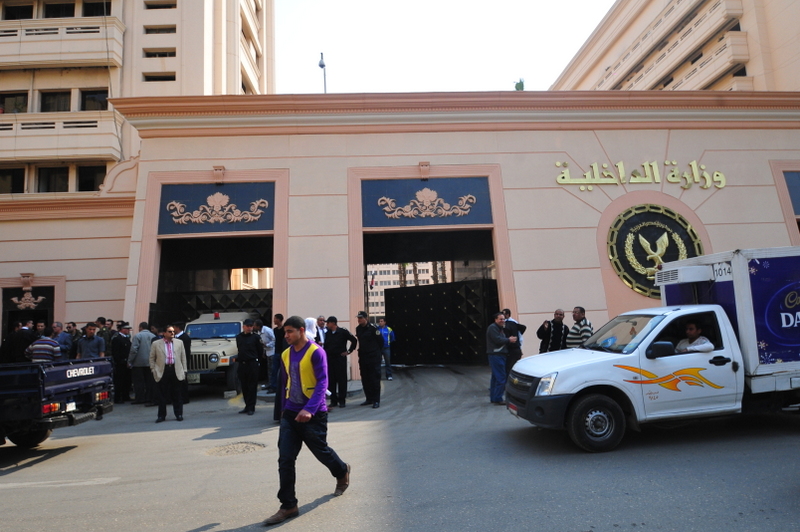CAIRO: As the number of reported bird flu cases continues to rise in Egypt, attention is directed towards the government’s efforts in controlling and eradicating the disease.
H5N1 first hit Egypt in February 2006. So far, 63 people have contracted the virus, 23 of which died and 35 were treated. Three patients are still undergoing treatment.
On Wednesday, another case was reported of a two-year-old from a village in Giza.
This week, the Ministry of Health announced that 6,337 cases were isolated for suspicion of carrying the virus. From Cairo alone 843 cases were tested but were all found negative.
The highest infected cases were found in Menufiya with seven people carrying the disease. Six cases were reported in Fayoum and Qena each; while Menya, Qaliubiya and Gharbeya reported five cases each.
Three cases were reported in each of Cairo, Aswan, Kafr El-Sheikh and Daqahleya, two cases in each of Assiut, Sohag, Beni Suef, Damietta, and Sharqeya, while Alexandria, Suez and Beheira only reported one case each.
Young victims
The disease has spread among children between the ages of one and two over the past month.
An 18-month-old child was reported to contract the H5N1 virus on March 10.
Also early March, two two-year-old boys from Alexandria and Fayoum were reported to be infected.
Young children, old people and health workers are most likely to contract the virus, and WHO called for an investigation of this phenomenon.
“The rapid growth rate of bird flu infections in children is worrying, John Jabbour, senior epidemiologist with WHO, told the UN news agency IRIN.
Jabbour speculated that the reason for the increased number of cases in this age group was that families were no longer as alert as they were after the last awareness campaign.
“This is a problem that will not go away in poultry; hence people who deal with birds cannot afford to relax. Those who come in contact with birds must make caution part of their daily routine, he said.
“When children are infected then the message hasn’t arrived yet. There must be better funding, support and subsidization policies for farmers, Diaa Salman, a virology expert who has been working on avian flu in Egypt since 2006, said.
“The Ministry of Health has implemented a comprehensive awareness plan that comprised more than 13,000 rural advisors moving from house to house, in addition to mass media campaigns, Abdel Rahman Shahin, spokesperson of the Ministry of Health told the press.
“We also succeeded in saving the lives of children infected with the virus, he said, adding that no fatalities were reported for children under 10 years old.
However, experts think that there is still a long way to go.
Getting the science right
Salman believes there is still room for improvement.
“Although it hasn’t reached the epidemic stage yet, Egypt is now second to Indonesia among the most affected countries by avian flu virus, he told Daily News Egypt.
“The number of human and poultry infections show that some policies are ineffective; we need to reevaluate and assess the current capacities from laboratories and personnel operating at these laboratories, and update them as well as reviewing expenditure in this field, he explained.
Salman also called for reassessing the types of vaccinations used, their sources and quality. He also called for cooperation between the Ministries of Health, Environmental Affairs and Agriculture in monitoring immigrant birds and the developments of the virus in Egypt.
According to Salman, monitoring the disease requires highly equipped laboratories with isolation and identification devices that can spot the microbes in live and dead infected bodies as well as high safety standards.
“They aren’t available at most places, he said.
Nasr El-Din Al-Tantawy, a former epidemiologist at the World Health Organization (WHO), said that the Egyptian government’s efforts are not sufficient especially since the virus is now enzootic in the poultry sector.
“In Egypt, we deal with special kind of cultural and economic habits related to poultry farming especially in rural areas which demands intensifying awareness campaigns among farmers, he previously told Al-Masry Al-Youm independent daily.
“The level of biological safety and vaccinations is excellent in major farms but it declines in small and new farms which enables the virus to become enzootic there, he explained.
However, Hala Esmat, technical officer at the WHO, says that Egypt is on the right track concerning developing its laboratories.
“Most of the laboratories in Egypt are highly equipped; the latest was the WHO’s laboratory which has been promoted last week as the national laboratory for examinations, Esmat told Daily News Egypt.
She added that the WHO is working closely with the Ministry of Health to follow up on various issues.
While the chances of infections remain relatively low, experts fear H5N1 could mutate into a form that can easily be passed from one person to another, leading to a pandemic which could kill millions.
“Most farmers in rural areas don’t apply safety standards like having backyards for raising poultry or separation between immigrating birds and the farm birds. The ministry doesn’t visit these places regularly for inspection nor do the local authorities help farms get rid of dead birds safely or compensate them for dead animals, Salman said.
“Alternative policies must be implemented as well as heavy awareness campaigns especially as economic circumstances force farmers to depend on poultry rather than meat, he added.

